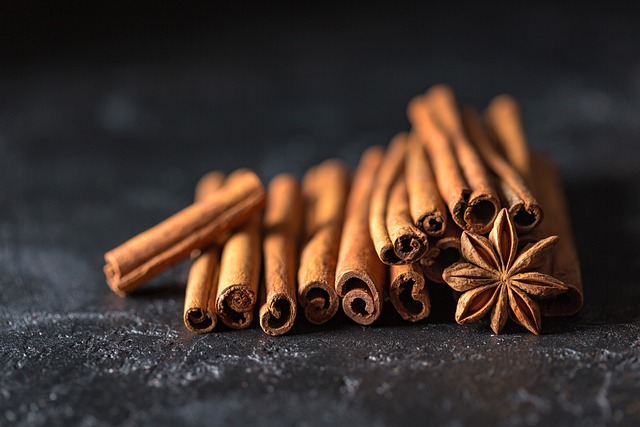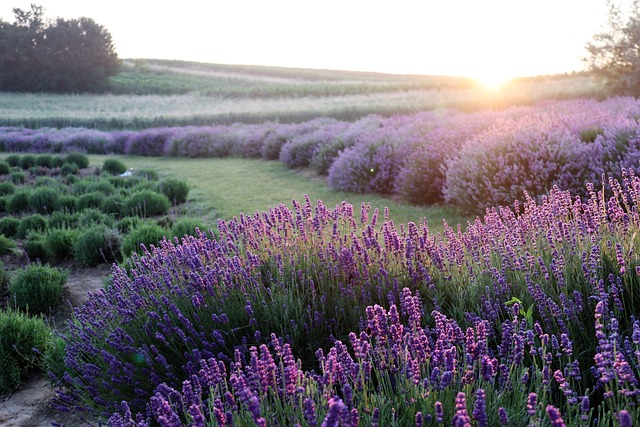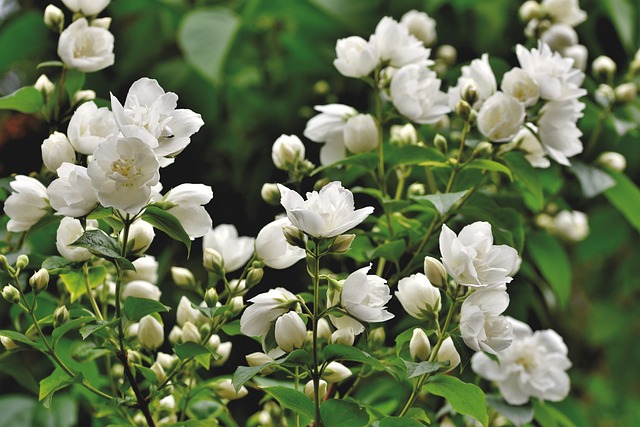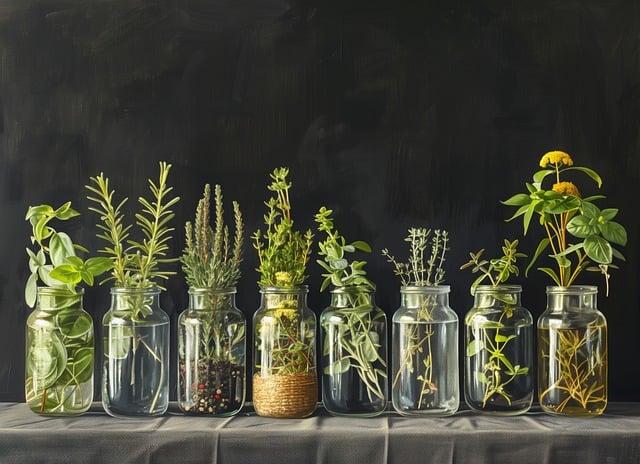Vanilla & Cinnamon: Warming Herbs to Ignite Passion and Desire
Throughout history, humans have sought natural ways to enhance intimacy, deepen connections, and awaken the senses. Among the most cherished natural remedies for passion and desire are warming herbs like vanilla and cinnamon. These fragrant botanicals do more than just delight the palate—they carry centuries of symbolic and practical associations with love, warmth, and sensuality.
Introduction to Warming Herbs
Warming herbs have long been revered in various cultures for their ability to stimulate circulation, invigorate the senses, and enhance mood. When used thoughtfully, they can cultivate an environment ripe for romantic connection and sexual vitality.
What Are Warming Herbs?
Warming herbs are plants or spices that generate a sensation of heat or warmth when applied topically, inhaled, or ingested. This warming effect often correlates with increased blood flow and heightened sensory awareness, which are critical for physical arousal and emotional intimacy.
The Historical Use of Warming Herbs in Romance
Across the ancient world—from the Indian subcontinent to the Mediterranean—herbs like cinnamon and vanilla were not only culinary treasures but also sacred aphrodisiacs. Their aromas were incorporated into perfumes, oils, and incense used in rituals meant to spark desire and celebrate love.
Vanilla: The Sweet Essence of Desire
Botanical Background and Origin
Vanilla, derived from the pods of the Vanilla planifolia orchid, is native to Mexico and Central America. The Aztecs prized vanilla as a luxurious flavoring and as an ingredient in their ceremonial chocolate drinks, believed to promote vitality and attraction.
The Sensory Profile of Vanilla
The scent of vanilla is universally comforting, sweet, and creamy, often described as warm and enveloping. This scent profile has a profound effect on the human brain, stimulating areas associated with pleasure and emotional bonding.
Psychological Effects of Vanilla Aroma
Studies show that vanilla scent reduces stress and anxiety, helping to create a relaxed environment ideal for intimacy. It is also linked to feelings of happiness and contentment, paving the way for emotional openness.
Vanilla in Traditional and Modern Aphrodisiac Practices
Traditionally, vanilla was blended into oils and massage blends aimed at awakening sensual energy. Modern aromatherapy continues this tradition by using vanilla essential oil or vanilla-infused products to enhance mood and promote a loving atmosphere.
Cinnamon: The Fiery Spark of Passion
Origin and Historical Significance
Cinnamon, harvested from the inner bark of trees from the genus Cinnamomum, has been treasured since antiquity. The spice was once so valuable it was considered a gift fit for kings and gods. In love potions and rituals, cinnamon symbolized vitality, power, and sensual heat.
The Sensory Impact of Cinnamon
Cinnamon has a distinct, sharp, and spicy aroma that immediately stimulates the senses. The spice’s warming nature triggers increased blood flow and can generate a tingling sensation when applied to the skin.
Physiological Effects of Cinnamon
Cinnamon contains natural compounds that promote circulation and mild stimulation of the nervous system. This can increase sensitivity and responsiveness, making it an effective ingredient in natural libido enhancers.
Cinnamon in Romantic and Healing Traditions
Many cultures used cinnamon in love spells, bath rituals, and incense to invoke passion and attraction. Today, it remains popular in sensual massage oils and herbal blends designed to boost intimacy.
How Vanilla and Cinnamon Complement Each Other
While vanilla soothes and comforts, cinnamon excites and stimulates. Together, they create a harmonious balance of warmth and sweetness that can enhance romantic experiences on multiple sensory levels.
Combining Aromas for Maximum Effect
The sweet, creamy notes of vanilla temper the fiery spice of cinnamon, producing a blend that is both alluring and inviting. This combination is often used in perfumes, candles, and massage oils designed to evoke feelings of love and desire.
Practical Uses in Enhancing Passion
Aromatherapy
Diffusing vanilla and cinnamon essential oils or using scented candles can create a warm and sensual atmosphere in any space. This environment helps partners relax and connect more deeply.
Massage and Body Care
Blending cinnamon and vanilla oils with carrier oils like jojoba or sweet almond oil creates a warming massage blend that invigorates the skin and senses, encouraging physical closeness.
Edible Treats and Sensory Play
Incorporating vanilla and cinnamon into desserts or drinks during intimate moments can stimulate taste and smell, heightening overall sensory experience and bonding.
Scientific Insights into Vanilla and Cinnamon’s Effects
Neuroscience of Aromas and Desire
The olfactory system is directly linked to the limbic system—the brain’s emotional center. Both vanilla and cinnamon activate neural pathways associated with reward, pleasure, and sexual arousal.
Clinical Studies and Findings
Research indicates vanilla’s calming effects reduce cortisol levels, lowering stress which is a common barrier to sexual desire. Cinnamon’s circulation-boosting properties have been shown to improve peripheral blood flow, enhancing genital sensitivity and response.
How to Safely Use Vanilla and Cinnamon for Passion
Choosing Quality Ingredients
Always select pure, high-quality vanilla extract or essential oil and Ceylon cinnamon, known for its mildness and safety compared to Cassia cinnamon, which contains higher coumarin levels that can be harmful in excess.
Methods of Application
- Aromatherapy: Use a diffuser or add drops of essential oils to a warm bath.
- Topical Use: Dilute cinnamon essential oil before applying to the skin to avoid irritation.
- Culinary: Incorporate in desserts, drinks, or romantic meals to engage the senses.
Precautions and Allergies
Conduct a patch test before topical use of cinnamon oil due to its potency. Pregnant or nursing women should consult healthcare providers before using concentrated essential oils. Avoid overconsumption of cinnamon supplements to prevent adverse effects.
Cultural and Symbolic Meanings of Vanilla and Cinnamon
Vanilla as a Symbol of Purity and Warmth
Vanilla’s pale color and delicate flavor symbolize innocence, purity, and gentle affection. Its use in weddings and celebrations often underscores themes of commitment and lasting love.
Cinnamon as a Symbol of Passion and Energy
The fiery essence of cinnamon represents vitality, courage, and the spark of desire. It is frequently associated with transformative energy and the awakening of the spirit.
Incorporating Vanilla and Cinnamon into Your Romantic Rituals
Creating a Sensory Ritual
Establish a ritual by preparing a warm cinnamon-vanilla tea or dessert, lighting scented candles, and sharing the experience mindfully with your partner. This helps build anticipation and deepens emotional intimacy.
DIY Warming Massage Oil Recipe
Ingredients:
- 2 tablespoons sweet almond oil
- 5 drops vanilla essential oil or vanilla extract
- 3 drops cinnamon essential oil (diluted)
Instructions: Mix ingredients thoroughly and store in a dark glass bottle. Warm a small amount between your hands before massaging onto the skin.
Enhancing the Bedroom Atmosphere
Use vanilla and cinnamon scented linens, sprays, or essential oil diffusers in your bedroom to maintain a continuous aura of warmth and desire.
Conclusion
The ancient wisdom surrounding vanilla and cinnamon continues to resonate in the modern world as natural allies of passion and desire. Their complementary qualities—vanilla’s calming sweetness and cinnamon’s fiery warmth—offer a holistic approach to igniting intimacy through the senses. Whether through aroma, taste, or touch, these warming herbs invite lovers to explore deeper connections and more vibrant experiences of love.
Bibliography
- Ellingwood, Finley. American Materia Medica, Therapeutics and Pharmacognosy. Dover Publications, 2000. ISBN: 9780486419916.
- Lawless, Julia. The Encyclopedia of Essential Oils. Conari Press, 2013. ISBN: 9781573246376.
- Green, Andy. Aromatherapy and Your Emotions. Healing Arts Press, 2007. ISBN: 9780892818931.
- Dossey, Larry. Healing Words: The Power of Prayer and the Practice of Medicine. HarperOne, 1996. ISBN: 9780062516681.
- Herz, Rachel S. The Scent of Desire: Discovering Our Enigmatic Sense of Smell. William Morrow Paperbacks, 2007. ISBN: 9780061174441.
- McCoy, John. Ancient Spice Trade. University Press, 1998. ISBN: 9780313292442.



